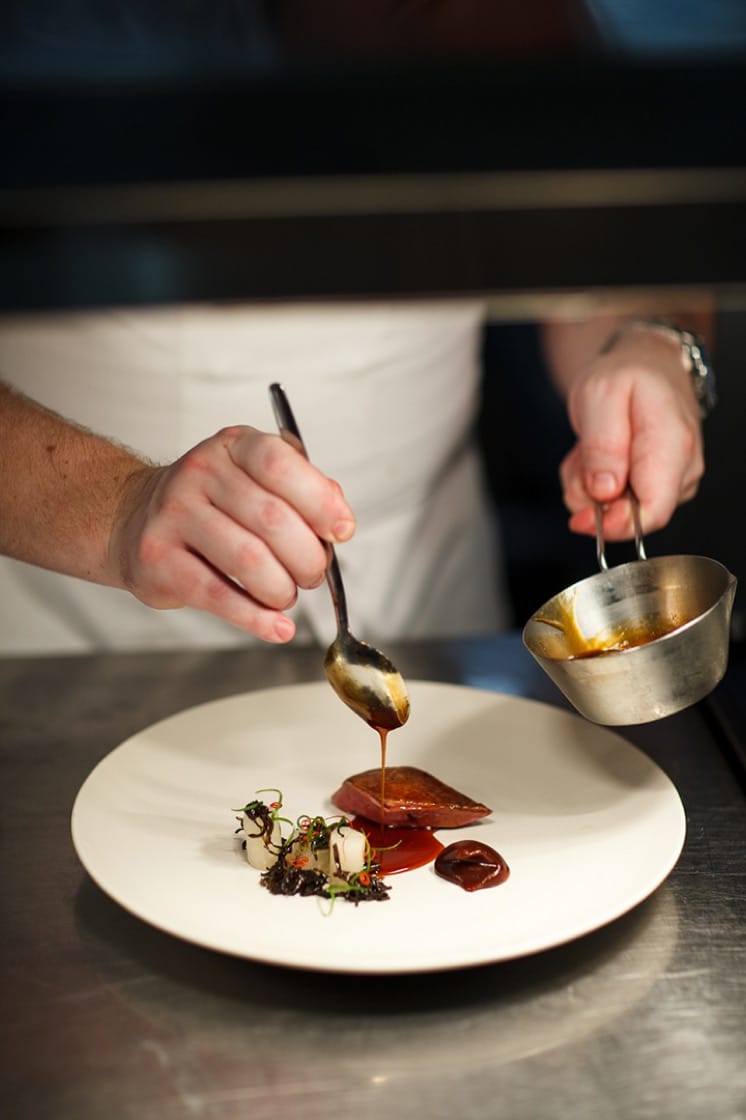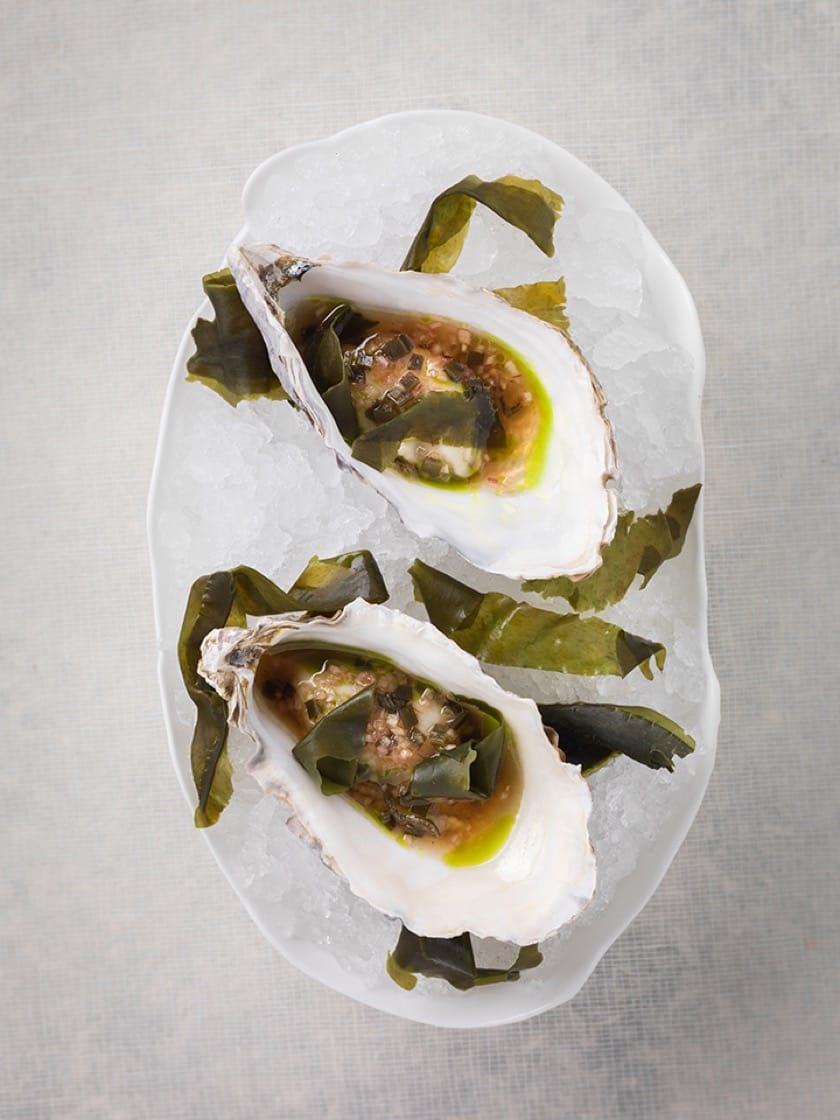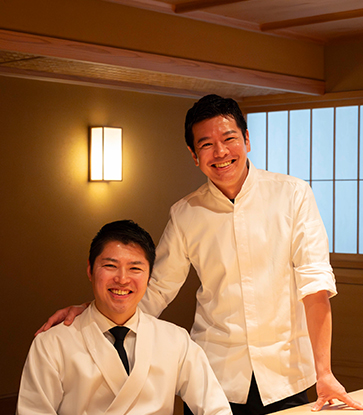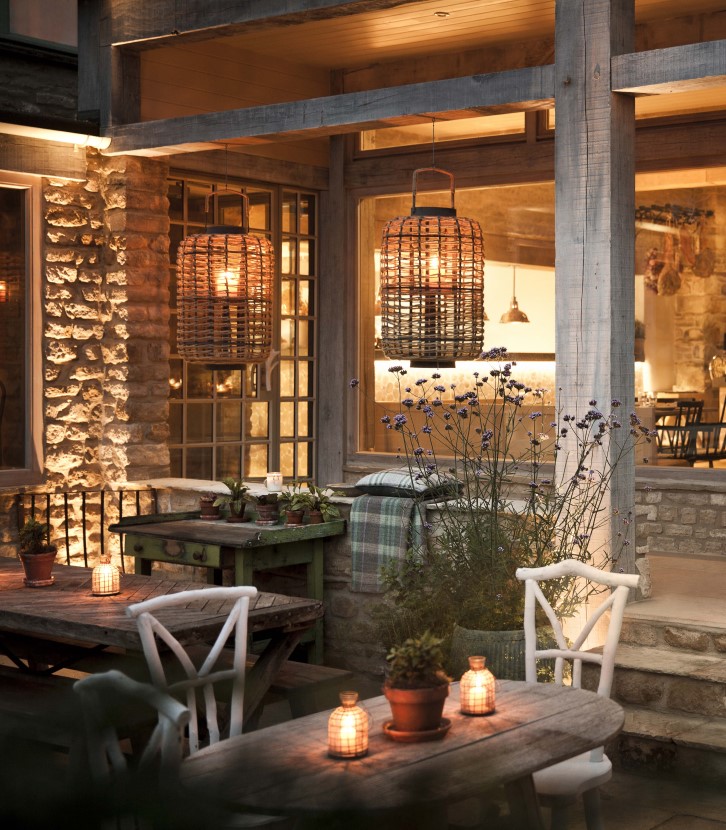Chef Niall Keating’s immense talent and potential was sparked from humble beginnings as a 15-year-old kitchen porter at Fitzherbert Arms in Stafford, England. Keating further cultivated his love for the kitchen as a sous chef at the Bath Priory hotel’s on-site restaurant before joining the two-starred Sat Bains in Nottingham as chef de partie.

Keating then furthered his career by heading west to San Francisco, where he worked for chef Corey Lee at Benu before returning to Europe in 2015, working as chef de cuisine at restaurant Kong Hans Kaelder with chef Mark Lundgaard Nielsen in Copenhagen.
In 2017, Keating’s former general manager at the Bath Priory contacted him with an opportunity to return to England and helm the kitchen of the restaurant inside the soon-to-open Whatley Manor in Malmesbury. The Dining Room (at the Whatley) was awarded its first Michelin star in the 2018 MICHELIN Guide Great Britain and Ireland, a mere eight months after opening. His work there has been described as “modern cooking [that] has a well-measured playfulness and brings together British, French and Asian flavors in an appealing multi-course set menu,” by MICHELIN Guide inspectors.
At the recent MICHELIN Guide Main Cities of Europe gala in Budapest, Keating was awarded the 2018 Michelin Young European Chef award, marking yet another milestone in his lightning-quick ascent. Here, Keating recalls his journey.

What was your first encounter with cooking? What unlocked your passion for cooking?
My first real food experience was going to work at Restaurant Martin Wishart for a week in Edinburgh when I was 16 during my school holidays. That was when I first looked at food and thought what an incredible journey a chef must have to go on to bring all of those ingredients together on one plate.
In terms of passion, I think being part of a brigade is where my kitchen passion came from. I used to play a lot of rugby and would always be very close as a team achieving goals—I found it easy to replicate this in a kitchen environment from a young age.

Was there someone who particularly influenced your career?
Yes, but without quite realizing until now. Sue Williams, the general manager here at Whatley Manor, was also my general manager nine years ago at The Bath Priory. I started as a breakfast chef for Sam Moody, working as part of the 90 staff members that Sue employed there. I worked my way up to sous chef by the age of 20 and could see how passionate about the industry Miss Williams was, so as I went on my travels around the world, we stayed in touch. I was then employed by Miss Williams on December 1, 2016 at 25 years old as the executive head chef of Whatley Manor.
Do you have a gastronomic role model or personality you admire?
I think there are too many to list—as a young chef I look up to so many industry greats and in so many different ways. But I will say ‘The Roux Scholars’ are a group of chefs I really admire. It’s such an incredible title and held with such high regard in our industry. I’m still only 27 so potentially I could make it one day.

What is the key ingredient of your success?
Constantly trying to understand and learn more about our industry is important. But showing respect to the chefs who have paved the way for the next generation is also influential to success.
In what context did you start working as a kitchen porter at the Fitzherbert Harms in Stafford?
My family lived in a small village in Staffordshire and The Fitzherbert Arms was the local Pub. I would go with my father from a young age and when I was in school holidays it was the best way of earning some pocket money.

Do you still have Korean cooking influences in your cuisine from the time you worked at Benu and from your experience with Mark Lundgaard Nielsen?
Absolutely, I have taken so much from every restaurant I have worked in. I love being able to use Asian ingredients and understand just how far I can take them in my menu. I worked under Corey Lee at Benu and also Sat Bains, which I feel both have an incredible and pure understanding of being able to serve one menu. Not only from a food point of view but the way the kitchen runs, how long the menu was taking to eat, and, most importantly, the balance of it all. I always wanted to revisit somewhere a little more classic after I left Benu and going to Kong Hans was a great option—I’m happy I can bring all of these experiences together now in a restaurant I can call my own.










